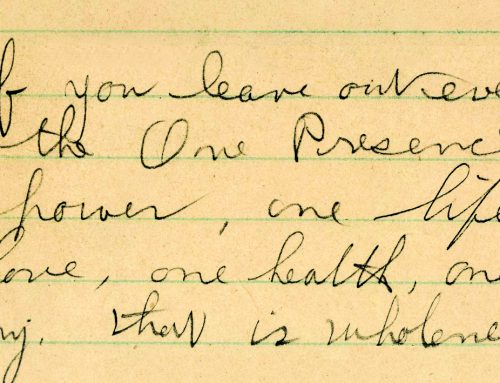Sunday talk from Rev. Rhonda Murray on 10th of Feb 2019
Jesus taught, “Love one another as I have loved you”.
LOVE is such an overused word in English because it lacks the many different dimensions of love. If we love our mother, and we love pizza, that is rather insulting for our mother!!
I’d like to bring the Greek word Agape into common use, meaning love for all our fellow beings, a universal, unconditional love.
Gospels written in Greek: agape.
Hebrew scriptures (Love your neighbour): ahava
The root word of ahava is “ahav” meaning, “to give.”
True ahava, true love, is more concerned about giving than receiving. …
The Hebrew word “ahava” is not an emotion but an action. Loving your neighbour is about more than feeling love, it is learning to SHOW love.
So how did Jesus show love? As well as speaking words of love, he healed, he blessed, he listened, he showed respect, even to women and children, Samaritans and lepers, and others looked down on in that culture at that time.
- Matthew wrote that he showed compassion for the people
- Three Gospel writers shared that he was concerned about the people who had followed him out of town being hungry, so he made sure they were fed.
- He forgave everyone who did not practice love or show love to him, even to the cross.
- His main message was that the kingdom of God is within everyone, and as we believe God is Omnipresent, then Love is everywhere present. Its our awareness of it that makes the difference.
Jesus fulfilled the Christ potential for love; he was the perfect expression of the Christ. He taught that we all have that Christ potential (the kingdom of God) within us. Charles Fillmore called it, “the true spiritual self of every individual” and wrote, “Love is the power that joins and binds in harmony the universe and everything in it”.
One of the ways we express that Christ within us is through our spiritual gift of LOVE.
Myrtle Fillmore wrote, “Love is one of our divine qualities that bring us into closer communion with our inner Christ. … Awakening our inner gifts of love and faith bringing us into greater spiritual awareness so that we can live
It is not lack of love that limits our relationships.
It is not lack of love that limits peace in our world.
There cannot be a lack of something that is Omnipresent!
It is our choice how we express our gift of love. And this determines ALL our relationships.
But first we find the love within ourself, because that is the only first-hand experience of love we can have. We need to know ourself as a spiritual being, radiating love out to others. And loving others means wanting their highest good – not what suits us, but what suits them!
Jesus said the greatest commandments were to love God – ie love the Christ within – and love your neighbour as yourself. This implied loving yourself, otherwise its not much good loving others as yourself!
I strongly believe that Jesus taught a direct link with Omnipresent Spirit because it is within us, and expresses AS us. How we express that Christ within is up to each of us.
The media news is currently full of the consequences of making men God. Jesus would have been horrified that his name was used to teach the idea that our only connection to God is through powerful men. Our culture has given them the status of gods, to the detriment of everybody else. This has led to them believing they can do whatever they like and get away with it.
Jesus said, quoting the Hebrew Scriptures, that we are ALL gods, not some of us gods and some not. We can all choose to express the God within us or to be so focussed on the outer world that we ignore the world within us. When we truly express the Christ within, we are expressions of real Love, Agape, Ahava.
The world needs Jesus’ message of the Kingdom of Heaven within every person, the kingdom that expresses as Love, Peace and Joy.
PAUL: In the metaphysics class I taught recently on Zoom, we studied the journeys and letters of the apostle Paul. Paul gets a bad rap because of letters written years after his time purporting to be by him, but he had great understanding of Jesus’ message of the kingdom within, and about loving others.
Paul travelled hundreds of miles, by foot or boat, and started groups in dozens of places. He had to contend with the belief system of the people, most of whom worshipped Greek or Roman gods, and it was compulsory to worship the reigning Caesar as a god. There were also followers of Greco-Roman gods such as Apollo and Venus, and philosophers such as Epicurus, who had many followers in Corinth and Philippi, in Greece. These were two of the groups Paul wrote to after he journeyed on, and the letters have survived.
Paul was clever at converting people by building on their current beliefs, so in Greece, for example, he used the writings of Epicurus as the foundation for teaching the Jesus message.
For Epicurus, the purpose of philosophy was to attain the happy, tranquil life, characterized by peace and freedom from fear— and the absence of pain— and by living a self-sufficient life surrounded by friends. It was Epicurus who first said, later plagiarised by Paul: “I have learned to be content with whatever I have”.
Paul’s writings on Love were directed to the followers of Epicurus, and also Apollo and Venus. Apollo was known for his many bi-sexual affairs, and Venus, the Roman equivalent of the Greek goddess Aphrodite, was the goddess of love, sex, beauty and fertility, and her followers worshipped at a temple to her in Corinth. What a challenge to replace these with worship of a god human enough to die on a cross!
Paul’s attempts have given us some of the most-loved words on love in the English language, written by Paul in one of his letters to the Corinthians.
I Cor chapter 13.
To “learn to show love”, we act from the awareness of Divine Love within us. An old Unity affirmation is, “I am a radiating expression of Divine Love”. If we can know this truth for ourselves and others, we will be doing our part to radiate love out into the world, and who knows what effect that might have?





